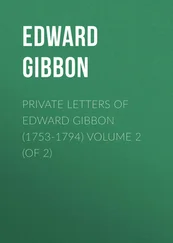Liffy nodded to himself, his face thoughtful.
I should also add that Ahmad has been well described as an Egyptian gentleman in a flat straw hat who stands at a slight angle to the universe.
Who describes him that way? asked Joe.
The retired belly dancer up the street, replied Liffy. That very nice woman who sells tender young roast chickens for a living, as well as serving as the official hum-job historian for the rue Clapsius. She always says that about Ahmad.
Oh I see.
Yes. And the reason Ahmad never takes off his boater, his hat, she says, is because it's a memento from an earlier and quieter age when Ahmad served as the stroke and captain of a racing crew rivered by the dragomen's benevolent society against the British navy. In those days there used to be a ferocious rowing competition known as the Annual Battle for the Fleshpots of the Nile, and in 1912, I believe it was, Ahmad's crew won, the only time the British navy was ever beaten at its own game on the Nile, and by riffraff at that. The touts and pimps had done it at last. . And never, notes the former belly dancer, did the rue Clapsius hum with so much verve as it did that night. It was a heartening triumph for all true Cairenes, naturally, and a banner day for Egyptian nationalism. So the boater Ahmad wears is a precious memento from that fabled victory of yesteryear.
Liffy frowned.
But that was yesteryear and now he's quiet, Ahmad is. He's like a huge solemn cat silently licking his memories. So although all paths lead to Ahmad, according to Bletchley's clues, I'd still go gently with him when introducing Stern's name. Years ago the two of them were very close, but there was some kind of betrayal involved and it's still a touchy subject. I've never gotten to the bottom of it.
Liffy stood up. His face brightened.
Anyway, I have to tell you I telephoned Cynthia last night, hoping for a reconciliation, and she said she might take notice of me if I turned up on her doorstep as someone suitable this afternoon. I was considering playing the part of a Free French officer with the colonials. You know, a darkly handsome spahi officer of Algerian cavalry. They wear swirling red cloaks. . Irresistible on a Sunday afternoon, wouldn't you think?
Devastating, said Joe, smiling.
If you've recovered, that is, and don't need me. . And by the way, Bletchley seems to have someone keeping an eye on you. I spotted a young fellow hanging about up the street. He's missing most of his fingers and he may just be looking for a tender young chicken for lunch, or then again he may not be. Are you interested?
Not yet, said Joe. It's too soon.
Liffy laughed.
It is? Strange, but that's what Cynthia always says when we get into bed. It's too soon. Talk to me first.
And do you?
Liffy nodded vigorously.
Indeed, I tell her erotic tales from my travels. Would I be one to deny the myriad sexual acts mounted by spahi officers over the years in the desert? Beneath the swirl of a red cloak on Sundays?
Ha, and now I'm off to taste adventure, boomed Liffy, happily sweeping out the door and clattering down the rickety stairs.
***
At the foot of the stairs, behind the small counter tucked away in the shadowy corridor that led to the street, the enigmatic Ahmad sat silently playing solitaire, a thirty-year-old newspaper open at his elbow.
From what Joe had seen, solitaire and thirty-year-old newspapers seemed to be the man's sole pastimes when he was not engaged in his professional duties as a deskman at the Hotel Babylon or as a forger in Menelik's mausoleum.
Ahmad was a large man, his appearance bizarre even by rue Clapsius standards. In addition to the battered flat straw hat that was always on his head, he wore great round tortoiseshell glasses, securely attached to his ears by pieces of red thread tied in identical bows. His hair was also a bright red, obviously dyed according to his own prescription, for the color was much too bright and uneven to have been the work of a professional hairdresser.
Although his massive face was far from young, it had remained smooth and unlined and was rooted in an enormous thrusting nose. The size of his hands was remarkable and the general impression he gave was of great muscular strength in repose. There was even a childlike eagerness to his face, as if his impressions of life were still new and not yet fully formed, with the result that he looked less like an older man and more like a boy who had aged.
Up until that Sunday Ahmad had always been withdrawn in Joe's presence, never saying more than was necessary. But Joe had guessed this might have to do with a natural shyness on Ahmad's part, and in fact Ahmad's manner changed completely, as Joe had hoped it would, when Joe leaned on the counter and mentioned in an offhand way that he had once heard many stories in Jerusalem about the masterly Egyptologist and revered black sage unknown to the world as Menelik Ziwar, dead now these many years.
Of course the fact that the mere mention of Menelik Ziwar's name could dramatically alter the nature of an afternoon, any afternoon, wasn't surprising. It was true that only a few people had ever heard of this fabled Cairene of the nineteenth century, even when he was still alive. But to those fortunate few he would forever remain an astounding man of unsurpassed accomplishments, a hero of legendary proportions.
And unforgettable in every respect. Joe only knew what he had been told about Menelik Ziwar a decade earlier in Jerusalem. But Ahmad's connection with old Menelik was much more personal, as it turned out, and inextricably entwined with his own most intimate concerns
***
Menelik Ziwar had begun life as a black slave named Boy, born in the Nile delta early in the nineteenth century. At the age of four he was tossed into a cottonfield and told to pick, and under normal conditions that is what he would have done for the rest of his days, about two decades at best, before dying of dysentery or cholera or typhoid. But somehow Boy managed to learn to write a few words, including Ziwar, the name of the rich cotton-fat family that owned him, and soon he was proudly inscribing this name as a kind of graffiti on every available surface on the plantation where he lived.
Before long one of the Ziwars took note of this ubiquitous salute to his name and was flattered by it. He had Boy transferred from the fields to his mansion, to service his opium pipe on a daily basis. Boy now had time to dream, and with his imagination fired by the rewards of literacy, he quickly went on to learn to read as well as to write. That accomplished, Boy felt he had earned the right to a better name and immediately chose Menelik for himself, after the mythical first emperor of Ethiopia, the only country in Africa not ruled by Europeans at the time.
When Menelik was freed his success was even more startling. He moved to Cairo as a young man and learned the European tongues in order to be able to support himself by working as a dragoman, while quietly launching his study of hieroglyphs between backstairs assignations with tourists. He then turned his attention to archeology, at the same time cornering the opium market in Cairo as a way to finance his expensive digs elsewhere, and soon became the leading Egyptologist of the century, a wizard of subterranean life.
Yet the habits of anonymity acquired in his youth stayed with him, and Menelik always allowed the dissolute young men of the Ziwar clan to take credit for his remarkable discoveries, preferring instead to remain invisibly in the background, sagely advising others where to dig and how much opium to smoke while doing so, the better to appreciate these splendid treasures hidden by the ages.
Читать дальше












